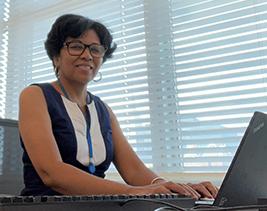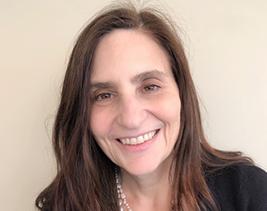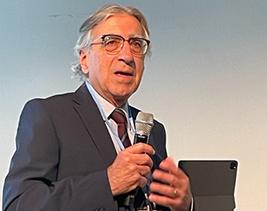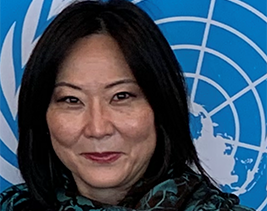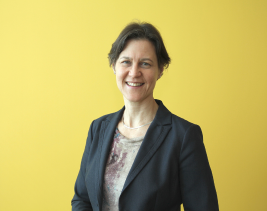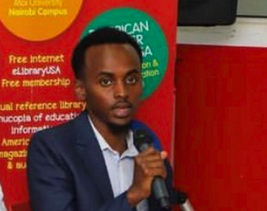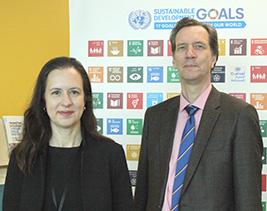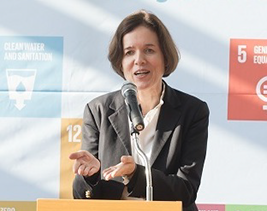With concerted, ambitious action, we can reduce poverty drastically by 2030
Around the world, some 670 million people live in extreme poverty. Unless progress picks up pace, the international community is nowhere near ending this plight before 2030. Ahead of the International Day for the Eradication of Poverty on 17 October, UN DESA’s Hantamalala Rafalimanana describes the dire situation and what it takes to end poverty once and for all.
Can you provide information on the current state of poverty worldwide?
Time to scale up creative solutions to bridge the SDG funding gap
Financing to implement the Sustainable Development Goals (SDGs) is off track. The annual funding gap has widened and is currently estimated at over $4 trillion. How can we close this gap and what role will the High-level Dialogue on Financing for Development on 20 September play to secure financing for the goals? We spoke with UN DESA’s Shari Spiegel who explains.
Seeking synergies: How can action on climate and the SDGs work together?
How can the world effectively address the climate emergency and the challenges in achieving the Sustainable Development Goals (SDGs) simultaneously, in order to maximize their impact? We spoke with Luis Gomez Echeverri, co-lead of the Expert Group on Climate and SDG Synergies convened by UN DESA and UNFCCC secretariat in May 2023, to shed light on this question.
How does climate action relate to the SDGs?
We need to do better for 1.3 billion people around the world
“In almost all aspects, persons with disabilities are in a worse situation than those without disabilities,“ said UN DESA’s Masumi Ono. “We need to be doing better,” she stressed as we spoke about the upcoming Conference of States Parties to the Convention on the Rights of Persons with Disabilities taking place on 13-15 June 2023.
1. What can you tell us about the situation for persons with disabilities around the world?
“The situation is unacceptable for the 1.3 billion people in the world. We need to be doing better.
“Middle-income countries face a set of global challenges that require joint action”
Around the world, 107 nations rank as middle-income countries. They generate a per capita income from about $1,000 to more than $12,000 per year and together, they are home to three quarters of the world population. Ahead of the UN General Assembly High-level Meeting on Middle-income Countries on 11 May, UN DESA’s Cornelia Kaldewei explains the issues that middle-income countries face today.
“I am using my voice to speak up for my community and country”
Ahmednoor Haji is a Kenyan youth advocate who runs The KESHO Alliance, an award-winning organization that promotes and advocates for quality education, youth and women empowerment, and peace and security. This month, Ahmednoor will take part in the ECOSOC Youth Forum to be held in New York from 25 to 27 April. At this event, his strong voice is expected to mobilize youth action to achieve the Sustainable Development Goals (SDGs).
LDC5: From potential to prosperity
Forty-six countries in the world are classified as least developed. Ahead of the 5th UN Conference on the Least Developed Countries (LDC5) UN DESA Economists Marcia Tavares and Matthias Bruckner share challenges and opportunities facing Least Developed Countries (LDCs) today.
At UN ECOSOC - how the power of ideas is turned into action
The UN Economic and Social Council (UN ECOSOC) is gearing up for a very busy 2023, culminating in the SDG Summit in September. Marion Barthélemy, Director of the Office for Intergovernmental Support and Coordination for Sustainable Development in UN DESA, talks about ECOSOC’s role in bringing sustainable development directly into people’s lives.
Behind the scenes of two major UN DESA reports
UN DESA will kick-off 2023 with a bang, launching its two flagship reports, the World Social Report (WSR) and the World Economic Situation and Prospects (WESP) in January. Hear from our experts in the fields of ageing, population and macroeconomics and learn more about UN DESA’s analytical work and how it informs Member States’ action plans on the 2030 Agenda for Sustainable Development.
“International migrants are important agents of change”
Every year on 18 December, we pay tribute to the 281 million people around the world who are international migrants. What do we know about their current situation as the world is facing multiple crises? What role does migration play for the global goals? We spoke with UN DESA’s Clare Menozzi to find out.
1. Our world is facing multiple crises: conflicts, war, hunger and an escalating climate emergency. How is this all affecting international migration?
 Welcome to the United Nations
Welcome to the United Nations
